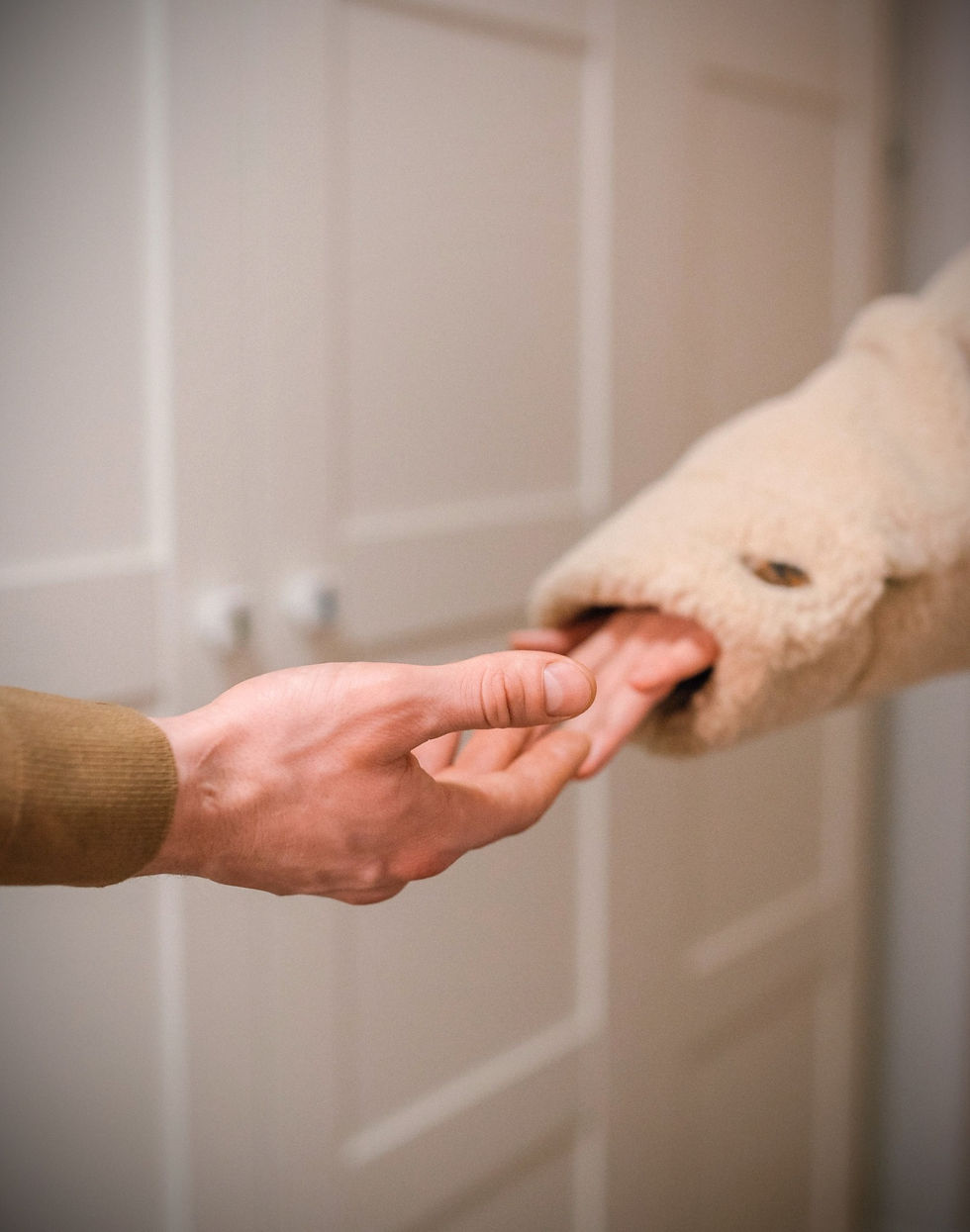Three Emotionally Intelligent Strategies for Couples to Manage Holiday Stress
- Terri DiMatteo, LPC

- Dec 19, 2023
- 4 min read
Updated: Jan 2, 2024

While the holidays can be full of cheer and warmth, they are also stressful. One's to-do list grows long, family interactions increase, and travel can be a headache. It's no wonder that tensions among couples may be unavoidable during the holiday season. Couples face challenges during the holidays, whether a new couple, in a long-term relationship, or a relationship nearing its end.
People often respond with logistical problem-solving when conflict, tensions, and emotional unease surface. Partners tend to find a solution to the problem, hoping that the practical remedy will call down their distressed loved one.
Logistics problem-solving solutions are appropriate in work settings, as a consumer, and in non-intimate interactions. In a romantic relationship, however, it is crucial to offer an emotional response.
Problem-Solving Works Best Following an Emotional Response
The emotional states of couples are closely connected through intricate physiological processes. When one partner responds with empathetic and compassionate love, it helps stabilize the emotionally distressed partner and benefits the partner who offers the empathetic response. Both parties - and the relationship itself - benefit from this approach as it helps to de-escalate stress and anxiety. Couples who are able to regulate their emotions together tend to experience greater happiness and satisfaction in their relationships.
When your partner is going through emotional distress, responding with empathy and love-filled reassurance is the most effective way to show you care. Showing empathy and support to your struggling partner can help to alleviate their pain.
Resolving the external challenge comes after connecting emotionally and calming down together. Partners who feel heard, understood, and appreciated are more receptive to problem-solving suggestions.
To illustrate, here's an example:
A wife shares with her husband, "I just discovered that your mother's present won't arrive in time for the holidays. I want her to think I'm organized and thoughtful, not some disorganized scatterbrain! I don't want to get her something else because I know she will like the present I ordered. I feel stressed, and I'm not sure what to do."
As he senses his wife's discomfort, he puts his arms around her and says, "I can see how much this worries you. I appreciate the thoughtful care you are putting into my mother's gift. I know she appreciates the care you put into her gift, and I love you for it."
Feeling understood and appreciated, she is comforted. The situation doesn't feel as worrisome with her husband being so attuned to her distress.
Partners are more receptive to suggestions after validating feelings and experiences and problem-solving.
With emotional closeness in mind, here are three practical, emotionally intelligent ways to help manage holiday tensions.
Get Ahead of Family Tensions, Conflict or Difficult People
Holiday get-togethers can be challenging, especially when family members have difficult personalities or annoying habits. Complex family dynamics can also make navigating these gatherings a challenge.
If you find that specific family challenges resurface every year, it's a good idea to discuss them with your partner in advance and devise a plan. Before the holiday gathering, talk about the people or situations that may be triggering and find ways to support each other when those triggers arise.
For instance, if your partner gets annoyed by your uncle's political banter, be mindful of how that can affect them when your uncle starts talking politics.
Together, you can create a plan to help each other stay calm when dealing with difficult people or tense situations. You can offer a knowing glance, hold hands, or suggest taking a break by moving to another room or stepping outside for a few.
The key to avoiding trouble is to communicate in advance and work together as a team to anticipate challenges and devise a plan to manage them.
Plan Small Moments to Connect
Again, before the gathering, plan to have a few stolen moments for a bit of one-on-one contact with a planned check-in, a quick kiss, or a brief hug. These small, intentional, anticipated moments to connect can make all the difference.
During the duration of a crowded visit, plan to spend some time together. While you don't have to join at the hip constantly, do discuss in advance a plan sometimes to stand or sit with one another during the holiday gathering.
Feeling close and connected can have a positive impact even in a crowd.
Discover What the Holidays Mean to Your Partner
It can be valuable to take the time to explore your partner's holiday history. What were their holidays like when they were a child? What did they enjoy, or perhaps dislike, about the holiday season? Which traditions do they want to keep or modify?
By learning more about your partner's past experiences, views, and emotions regarding the holidays, you can better understand their reactions to certain holiday events. Instead of dismissing their feelings by saying things like "You're overreacting" or "Where's your holiday spirit?", you may be more compassionate and understanding by knowing the origin of those emotions.
This approach can help deepen your intimacy and enable your partner to comprehend the root of your reactions better. Additionally, it can help you both respond in ways that provide comfort, reassurance, and solace to one another.
Podcast Subscribe to Communique Practice Website



Comments